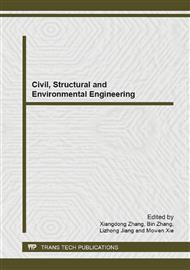p.3031
p.3035
p.3042
p.3050
p.3054
p.3060
p.3064
p.3069
p.3073
Research on System Development of Smart City
Abstract:
City management has been brought significant challenges by urban population increasing, for example, urban transport, environment, water resource, residents medical treatment and so on. Take full advantage of information technologies, manage city operation in an integrated and systematic mode, to coordinate the various functions of city, provide quality service and unlimited innovation space for enterprises, higher quality of life for residents. Based on interconnect, collaborative and wisdom, the smart city is a new thinking path for exploring future urbanization and a new concept for promoting post-modern city construction. From the perspective of system engineering, comprehensively analyzed system architecture of smart city, soft environment construction, city construction dimensional model, evaluation indexes, causal analysis diagram and evaluation flow chart to provide a reference thinking path for the smart city construction and development. At the same time, the future research direction of the project were given, they were how to mine big data from smart city operation, construct organization and operation mechanisms of smart city.
Info:
Periodical:
Pages:
3054-3059
Citation:
Online since:
November 2013
Authors:
Price:
Сopyright:
© 2014 Trans Tech Publications Ltd. All Rights Reserved
Share:
Citation:


